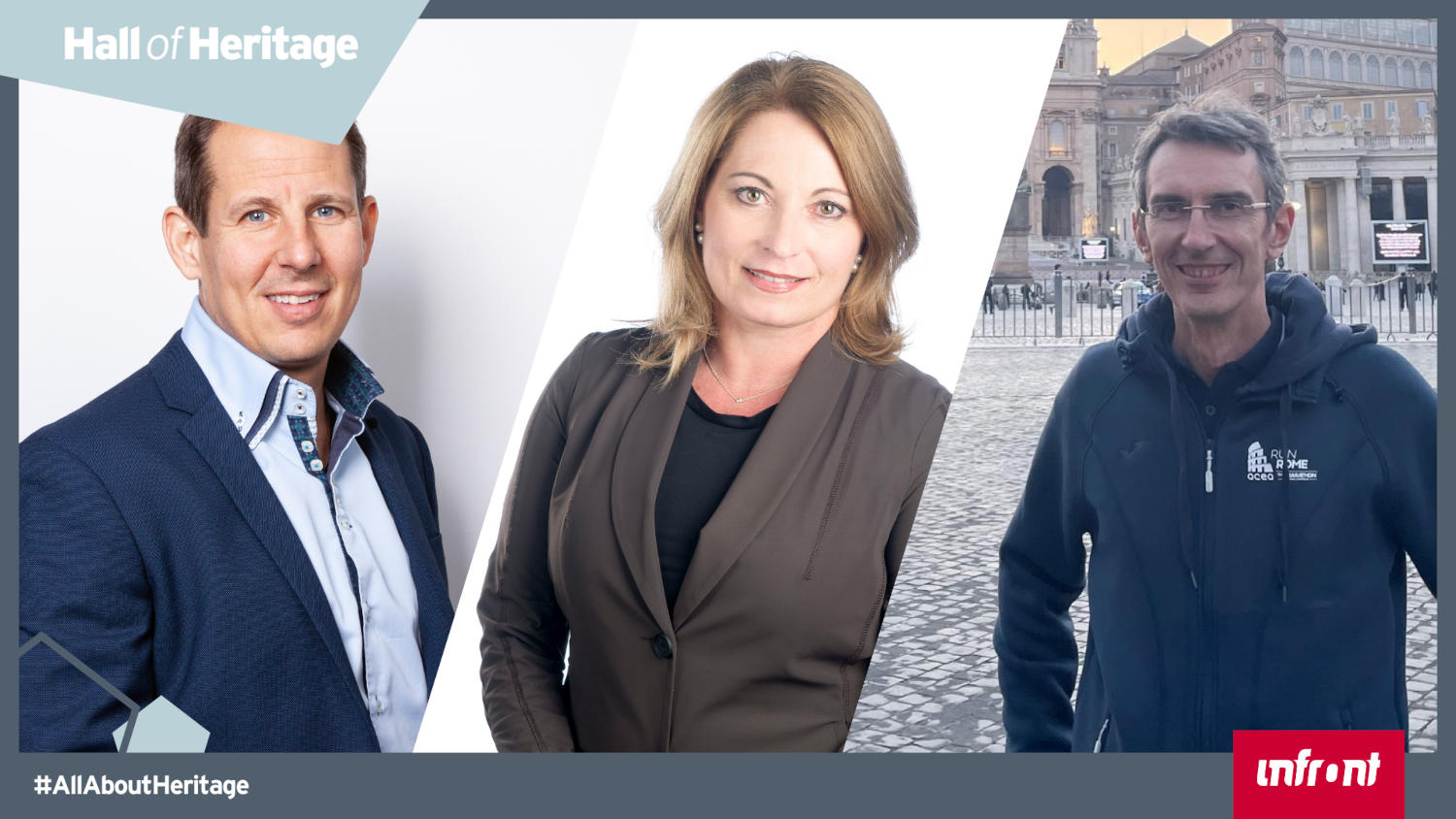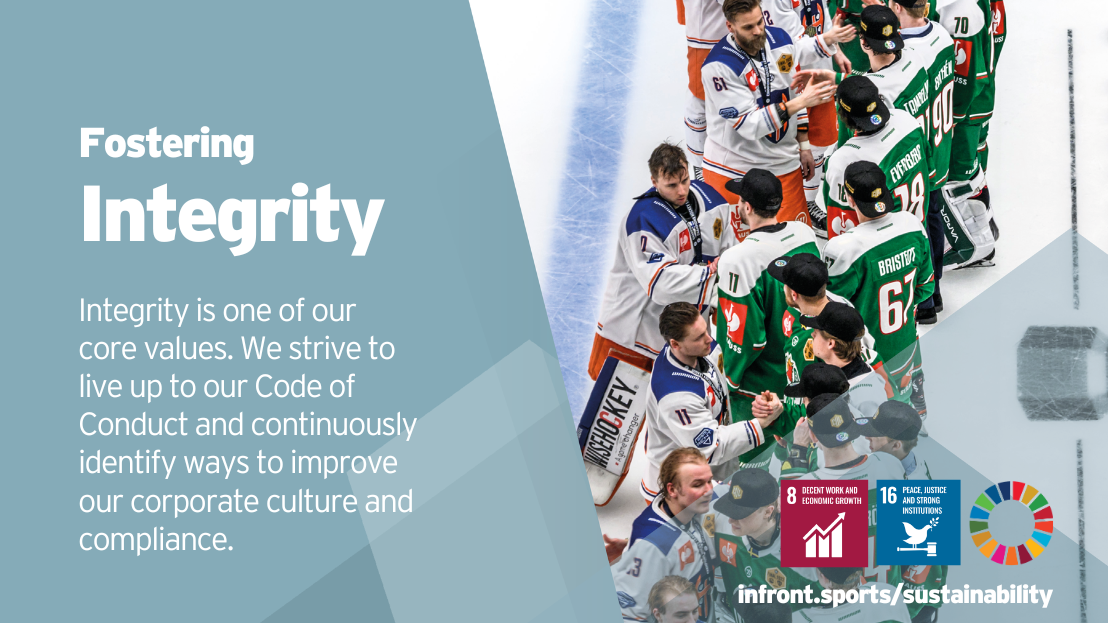Infront started implementing its state-of-the-art compliance management system in 2012. Since then, we have deliberately focussed on strengthening and continuously improving and adapting it.
These efforts have resulted in Infront receiving International Organization for Standardization (ISO) Certification for both compliance and antibribery management systems. But what does it mean for our partners? Barbara Lustenberger, Director Infront Group Compliance answers some of the key questions.
What is ISO Certification and which standards does Infront now have?
ISO is an independent, non-governmental international organisation with 167 members (national standards organisation representing each a country). ISO has published more than 24,500 international standards covering almost all aspects of technology, management and manufacturing. An international standard is a document containing practical information and best practices.
Some of those standards can be certified. This means that an independent body has given written assurance (a certificate) that the product, service or system in question meets specific requirements.
Infront obtained a certification for two different standards:
- ISO 37301: 2021 (Compliance Management System). This specifies requirements and provides guidelines for establishing, developing, implementing, evaluating, maintaining and improving an effective compliance management system within an organisation.
- ISO 37001:2016 (Anti-Corruption Management System). This specifies requirements and provides guidance for establishing, implementing, maintaining, reviewing and improving an anti-bribery management system.
The two certificates were issued by Austrian Standards which is an accredited certification body.
How does the process to gain ISO certification work?
Firstly, you have to select the certification body. Infront opted for Austrian Standards as they have a broad experience with ISO certification and they were already accredited to certify the relatively new ISO standard 37301.
Two auditors were then mandated by Austrian Standard to organise the audits with us.
We started the project with a gap analysis to verify if we met all requirements of the chosen ISO standards. The identified gaps were closed before a one-day audit was conducted by the lead auditor. This consisted of intense interviews with compliance personnel as well as three interviews with other employees. In addition to the interviews, the lead-auditor went through the documents we provided.
Elements which would not conform with certification were detected and documented. These were the areas we needed to work on and fix before the second audit. For us, this was three months later.
The second audit, which took more than three days to complete, saw the auditors conduct over 35 interviews with employees from different departments and hierarchy levels. This was to discover if the compliance management system and anti-bribery management system are implemented effectively. Once again, a lot of documents were checked by the auditors.
We then received an overview of minor nonconformities and were given time to work on measures to eliminate them. Our proposals were entered into the audit tool with the deadline to implement the measures coming during the surveillance audit, usually taking place one year after the second audit.
Once the proposed measures are approved, the audit report is submitted to Austrian Standards which then reviews the report and decides upon issuance or denial of the certificate.
How will this benefit Infront and its partners?
There are several ways this will benefit all our stakeholders.
Firstly, it means that liability and reputational risk is greatly reduced. We have worked hard on our compliance system and have always had faith in the model we have put in place. However, this certification formalises this and means clients and third parties can have trust and confidence that our business is all above board. It also means that, going forward, we can quickly and effectively address compliance concerns and use it as an example of our integrity in future tenders.
It also provides an added level of protection for our staff. Certification provides evidence to the supervisory and public prosecution authorities that we go to every length to ensure we operate in an ethical fashion. We will continue to do this and create a positive culture of compliance for the Infront Group as a whole.





.jpg)


